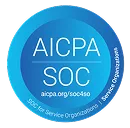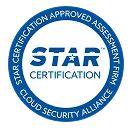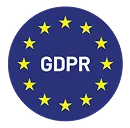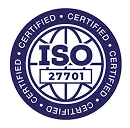In this edition of the Launch Station, we spoke to Peter Taylor, Speaker, Trainer, Consultant, Coach, and Influencer in the world of PMOs and project management. He is also the author of 20 books including two best-selling books on ‘Productive Laziness’ – ‘The Lazy Winner’ and ‘The Lazy Project Manager’. He is a professional speaker and has delivered over 450 keynote presentations addressing over 60,000 people across 25 countries. He was also recently awarded the PMO Influencer of the year 2020.
His mission, he shares, is to enable people in project management roles to ‘work smarter and not harder’ through a fine balance of collaboration, communication, and culture. In this freewheeling conversation, he talks to us about the genesis of his book ‘The Lazy Project Manager’, why expectation management is a journey, not a destination, imagery and tools that can help build professional relationships rooted in trust, honesty, and collaboration.
In this episode, you’ll hear him answer questions on:
- Why one needs to be a ‘lazy project manager’
- Who owns expectation management — sales or project managers?
- The delicate balance of documentation, communication, and getting things done
- What the future holds for project management
- The impact of tech on project management
- Advice for project managers
- Support systems for struggling project managers
…and more.
Summary and Takeaways
This conversation with Peter left us with a renewed commitment to sticking to the basics:
- Investing in people and professional relationships,
- Building and nurturing trust,
But most importantly,
- Striking a balance — between smart and hard work, responsibilities and delegation, and processes and people.
Here are some more detailed takeaways from this session. We hope these help you lead your customer success teams to success while helping you become a better manager and leader.
1. The genesis of ‘The Lazy Project Manager’
Peter saw that project managers clocking in 70–80 hours a week were just as successful as those working 40–50 hours. This led him to develop the concept of ‘Productive Laziness’, which he describes as a way of managing oneself while managing projects. The book is an account of his lessons, confessions, and observations, and study of project managers that he has worked with, led, and coached.
2. Key differences between internal and customer-facing project management
From his experience with hundreds of PMs and thousands of projects across his stints in organizations like Siemens and Chronos, he observed these differences in working with external clients:
- Project managers need to quickly get up to speed with the customer
- They need to learn to trust and collaborate
3. The journey of expectation management — responsibilities, problems, solutions
- The Sales to Sales-handoff can take from weeks to years across companies. Most problems begin with expectation setting — with most problems arising because either party is rigid about expectations, without focusing on the basics - trust, openness, honesty, and flexibility.
- The responsibility of expectation management should rest with the supply organization
- Kickoff meetings have a key role to play in the Expectation Management journey:
- They should involve all key stakeholders at both ends — sponsors, steering boards, executive members, key stakeholders, and project managers.
- They should move from supply organizations taking a ‘Push and Present’ approach to a partnership between both parties.
- Kickoffs should ideally be the end of a collaborative client-supplier team-building exercise spanning a few days or weeks
- A good approach is for the Client team to own the presentation in the kickoff meeting instead of the traditional approach where the supply team does this. This is a great way to drive client buy-in and ownership
4. Balancing documentation and ‘doing’
The key is to focus on the objective of documentation to focus on
- Broad outcomes and strategic intentions
- Processes
- Success indicators
Things to keep in mind for documentation at the SOW level:
- Don’t obsess over the details: Focus on people, processes, and interactions
- While documenting, focus on the ‘what’, not so much on the how
5. Project Management trends to look out for
- The role of AI in project management )Gartner reports say 80% of PM work will be done by AI)
- Project Managers can focus on people and relationships while spending less time on mundane and monotonous tasks
6. What makes a high-performing project manager
- Effective communication; Reporting is not communication, something for project managers to keep in mind
- The ability to trust and delegate (without being in every meeting, on every call, or reading every document by ensuring effective communication)
7. Culture, communication, and collaboration trump planning
- Expectation Management on the ground is all about acceptance of the fact that things will change while believing that this change is for the better.
- Culture plays a huge role in how teams work and projects pan out; understand and respect the culture of your client
- Communication is delivering the right information to the right person at the right time in the right way; all four elements need to come together for it to be effective
- Adopt and stick to an approach that places all interactions and collaborations focused on the greater benefit of the client.
8. Advice to project managers
Focus on the fundamentals: Relationship-building is critical, build trust; it will pay off in the long run.











